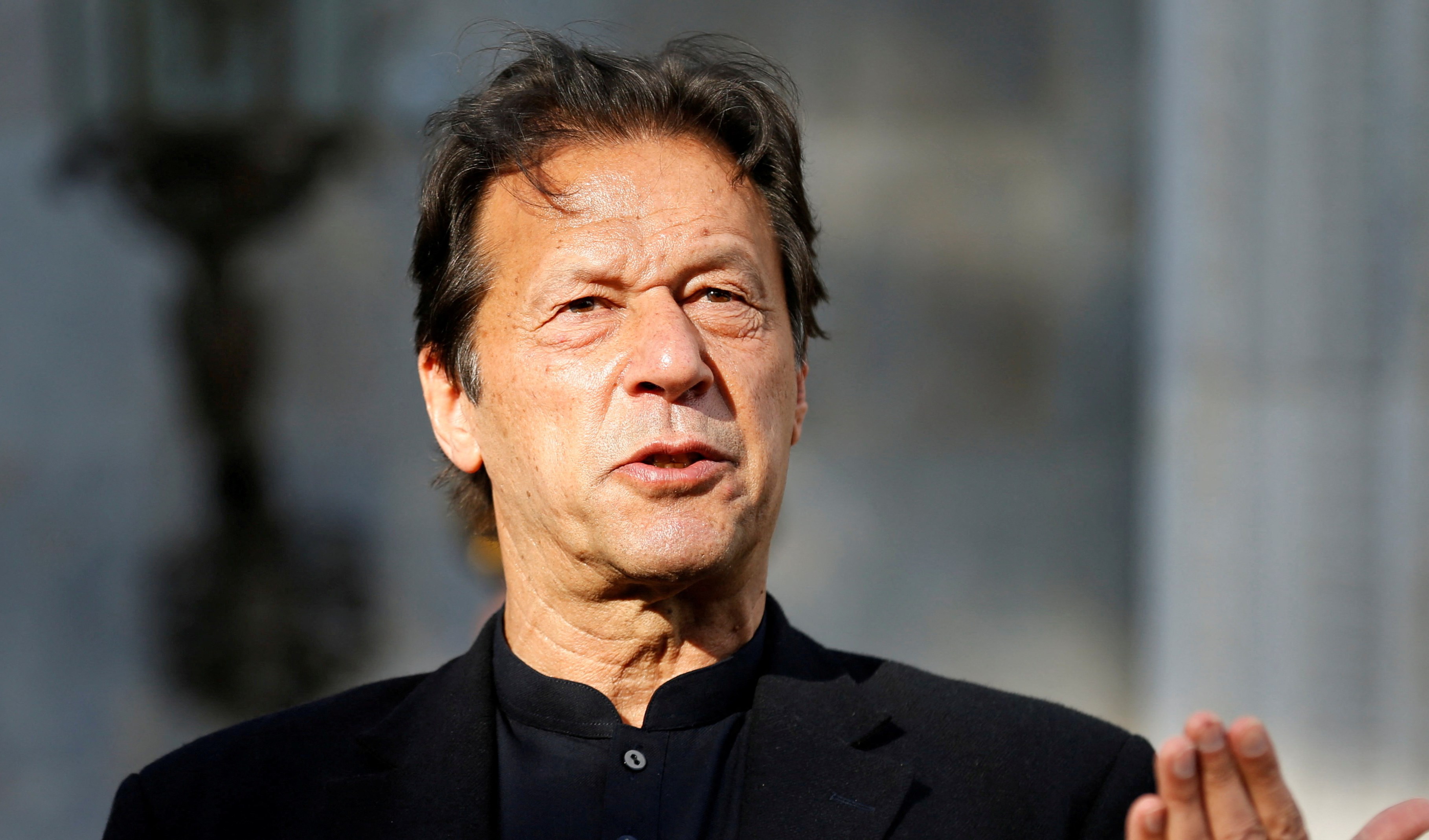Imran Khan says Pakistan by-election 'a referendum' on his popularity
The former PM is running for the majority of seats up for grabs.
-

Former Pakistan Prime Minister Imran Khan. November 19, 2020. REUTERS/Mohammad Ismail/File Photo
Former Pakistan Prime Minister Imran Khan is running for seven of the eight national assembly seats up for grabs in a key by-election on Sunday, which he calls a "referendum" on his popularity.
The by-election is the latest twist in the political saga that began with Khan's ouster via a parliamentary no-confidence vote on April 10.
It comes as the country deals with the aftermath of devastating monsoon floods that affected more than 30 million people and submerged one-third of the country.
Candidates in Pakistan elections can run for multiple seats. If they win more than one, they must choose which to keep, and those forfeited must be voted on separately later.
Read next: Contempt case against ex-PM Khan dropped
It is unusual for a candidate to run for as many seats as Khan is doing on Sunday. "This is not just a simple election, it's a referendum," he told a rally late Friday in Karachi, the bustling port city in the south of the nation of 220 million.
Khan has held dozens of rallies since his ouster, drawing tens of thousands of people, and has promised to announce the date of a "long march" of his supporters on the capital, Islamabad, soon.
#ShehbazSharif, #ImranKhan's successor, has a remarkable history of corruption along with his family.
— Al Mayadeen English (@MayadeenEnglish) April 11, 2022
Does Sharif's election confirm the ex-PM's claims of #US meddling in #Pakistan's internal affairs? pic.twitter.com/W7TeR4nVCQ
He is demanding that Prime Minister Shehbaz Sharif's coalition government call an immediate general election rather than waiting until October of next year. "If he wins most of the seats, he will press the government more," political analyst Hassan Askari Rizvi told AFP.
"But the government will reject the election call, claiming it doesn't reflect the national will."
Khan's Pakistan Tehreek-e-Insaf (PTI) party has already won a string of recent by-election victories, including control of the state assembly in Punjab, the country's most populous province, in July.
Read next: Imran Khan demands immediate parliamentary elections
Sunday's polls take place in eight constituencies of three provinces –- three each in Punjab and Khyber Pakhtunkhwa, where Khan’s party holds sway, and two in Sindh.
"This is indeed a litmus test of his popularity provided elections are held in a free and fair atmosphere and they are not rigged," said Imtiaz Gul of the Center for Research and Security Studies in Islamabad.
"If he wins the majority of the seats, that will again be a testimony to the success of his narrative that he has built since his exit from power and that will obviously bring more pressure on the government."

 3 Min Read
3 Min Read








